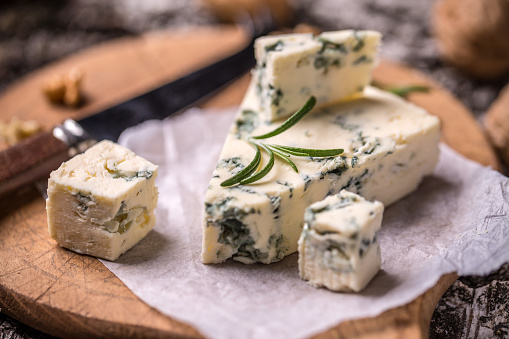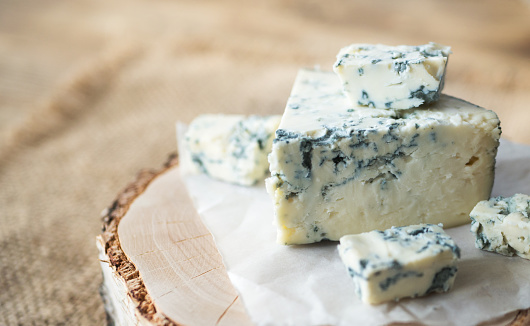Blue cheese is a type of cheese that is made by adding certain types of mold to the cheese, which results in a distinctive blue or green veining pattern. This type of cheese is known for its strong, sharp flavor and can be used in a variety of dishes, from salads to sandwiches to pasta. But what is the nutritional value of blue cheese, and is it healthy for you?
First, let’s take a look at the nutritional value of blue cheese. According to the United States Department of Agriculture (USDA), a 1 ounce (28 gram) serving of blue cheese contains approximately:
- 114 calories
- 9 grams of fat
- 6 grams of protein
- 0 grams of carbohydrates
It is also a good source of calcium, with approximately 20% of the recommended daily value per serving. Blue cheese also contains small amounts of other nutrients such as zinc, vitamin A, and vitamin B12.
One of the main concerns when it comes to the healthiness of blue cheese is its high saturated fat content. Saturated fat has been linked to an increased risk of heart disease, and the American Heart Association recommends limiting saturated fat intake to less than 7% of total calories. A 1 ounce serving of blue cheese contains approximately 8 grams of saturated fat, which is about 40% of the recommended daily limit.
However, it’s important to note that not all saturated fats are created equal. Blue cheese contains conjugated linoleic acid (CLA), which is a type of saturated fat that has been shown to have potential health benefits such as weight loss, reduction of heart disease risk, and cancer prevention.
Another concern with blue cheese is its high sodium content. A 1 ounce serving of blue cheese contains approximately 180 milligrams of sodium, which is approximately 12% of the recommended daily limit. High sodium intake can contribute to high blood pressure, which is a risk factor for heart disease.
On the other hand, Blue cheese is also a good source of probiotics. Probiotics are beneficial bacteria that live in the gut and can help to improve digestion and boost the immune system. Blue cheese is made using a specific type of mold, known as Penicillium roqueforti or Penicillium glaucum, which can act as a probiotic.
In conclusion, blue cheese can be a nutritious and delicious addition to your diet, but it should be consumed in moderation due to its high saturated fat and sodium content. If you’re concerned about your saturated fat or sodium intake, you may want to consider choosing a lower-fat or lower-sodium cheese, or limiting your portion size. It’s also important to note that blue cheese can be a good source of probiotics, which are beneficial for gut health. As always, it’s important to speak with a healthcare professional before making any major changes to your diet.

 Home
Home Health
Health Diet & Nutrition
Diet & Nutrition Living Well
Living Well More
More












